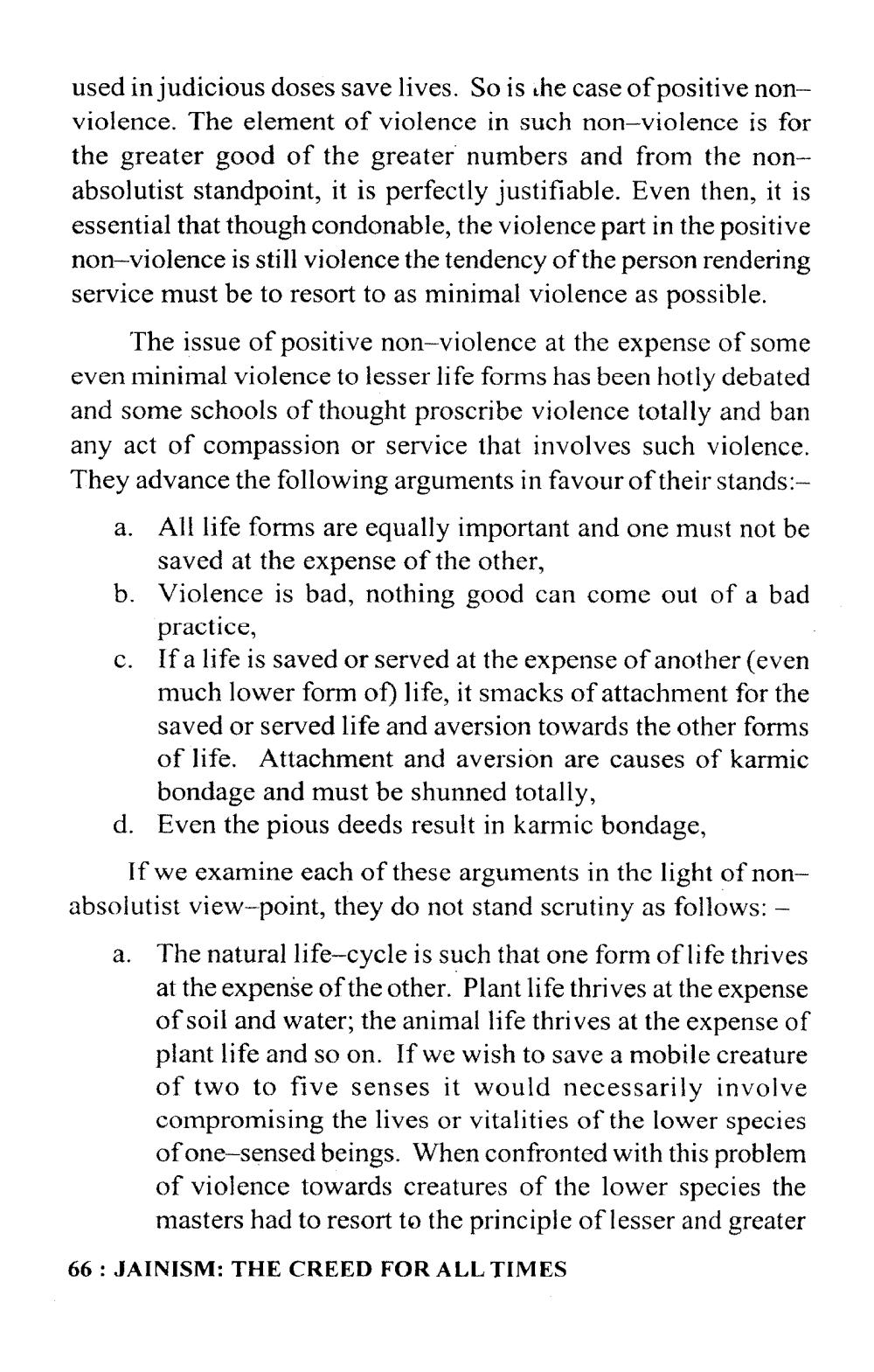________________
used in judicious doses save lives. So is the case of positive nonviolence. The element of violence in such non-violence is for the greater good of the greater numbers and from the nonabsolutist standpoint, it is perfectly justifiable. Even then, it is essential that though condonable, the violence part in the positive non-violence is still violence the tendency of the person rendering service must be to resort to as minimal violence as possible.
The issue of positive non-violence at the expense of some even minimal violence to lesser life forms has been hotly debated and some schools of thought proscribe violence totally and ban any act of compassion or service that involves such violence. They advance the following arguments in favour of their stands:a. All life forms are equally important and one must not be
saved at the expense of the other, b. Violence is bad, nothing good can come out of a bad
practice, c. If a life is saved or served at the expense of another (even
much lower form of) life, it smacks of attachment for the saved or served life and aversion towards the other forms of life. Attachment and aversion are causes of karmic
bondage and must be shunned totally, d. Even the pious deeds result in karmic bondage,
If we examine each of these arguments in the light of nonabsolutist view-point, they do not stand scrutiny as follows: - a. The natural life-cycle is such that one form of life thrives
at the expense of the other. Plant life thrives at the expense of soil and water; the animal life thrives at the expense of plant life and so on. If we wish to save a mobile creature of two to five senses it would necessarily involve compromising the lives or vitalities of the lower species of one-sensed beings. When confronted with this problem of violence towards creatures of the lower species the
masters had to resort to the principle of lesser and greater 66 : JAINISM: THE CREED FOR ALL TIMES




